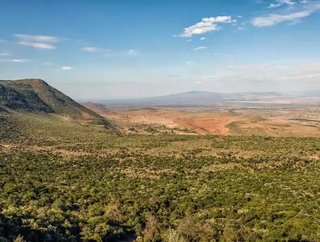Corruption, transparency and regulation: how at risk is Kenya's mining sector?

The Kenyan mining space is growing and will soon become one of the most attractive investment opportunities in the global sector, but how vulnerable is the industry to systemic, regulatory and institutional corruption?
A report from Transparency International Kenya set out to answer exactly that. The Corruption Risk Assessment in Mining Awards, 2017 focused specifically on the Kitui, Kwale and Taita Taveta counties in Kenya, with the goal of presenting a number of risks and vulnerabilities and more importantly, provide a number of recommendations to foster a more transparent and sound mining industry.
The assessment comes at an opportune time for the mining sector following the enactment of the Mining Act 20162 which repealed the Mining Act 1940. It has enhanced governing of the mining sector including reviewing of the award processes. Further, the Ministry of Mining has developed draft mining regulations and guidelines to support implementation of the Act.
Running the risks
A total of 18 risks were identified throughout the report, risks that broadly focused on clear gaps in the legal and policy framework, access to information, public participation processes and institutional capacity concerns among others.
Some of the key risks include;
- Speculation around land that is subject to a mining permit application such as by officials working with collaborators to change the status of the land to extract payments out of the license-holder
- Lack of legal protection for whistle-blowers
- External interference in the award agencies’ awarding of licenses
- Lack of legal clarity on surface rights in areas being opened for mini
Clear and present recommendations
The report looks in depth at the risks facing the Kenyan mining industry and then goes one step further, imploring the collaborative efforts of the Ministry of Mining, the National Environmental Management Authority, the mining companies in Kenya and Civil society organisations.
For the Ministry of Mining, recommendations include:
- Fast-track gazettement of all the necessary Mining Regulations and Guidelines such as the Mining (Royalty) Regulations to support effective implementation of the Mining Act 2016.
- Simplify laid down procedures and steps involved in acquisition of mineral rights for better understanding of the processes especially by affected communities
- Establish a whistle-blower mechanism to encourage most stakeholders with critical information to confidently submit complaints to the ministry for action
Related stories:
Mining Global Magazine - October 2017
Digging deep – inclusion and diversity in mining
Mali export tax regime encourages illicit gold trade in West Africa
What does the introduction of the Model Mining Code mean for the industry?
And for operating mining companies:
- Set up proper mechanisms that would promote incorporation of views from the affected communities in the EIA processes
- Adopt integrity management initiatives within the organization in line with legal frameworks available locally and at country of origin
- Flag out any anomalies observed during the license application process by licensing officials or their peers to create a culture of transparency in the award process
- Consider joining private sector initiatives that promote doing business with integrity such as the UN Global Compact initiative
- Alrosa steps down from Responsible Jewellery Council boardSupply Chain & Operations
- Responsible Mining Index 2018: mining more responsible, but work still to be doneSustainability
- Mining in Zimbabwe: The need for Government InterventionSupply Chain & Operations
- Actimize: Helping miners to ‘de-risk’ financial operationsSupply Chain & Operations






